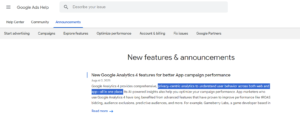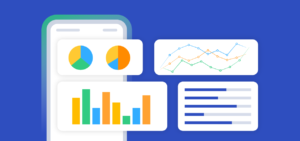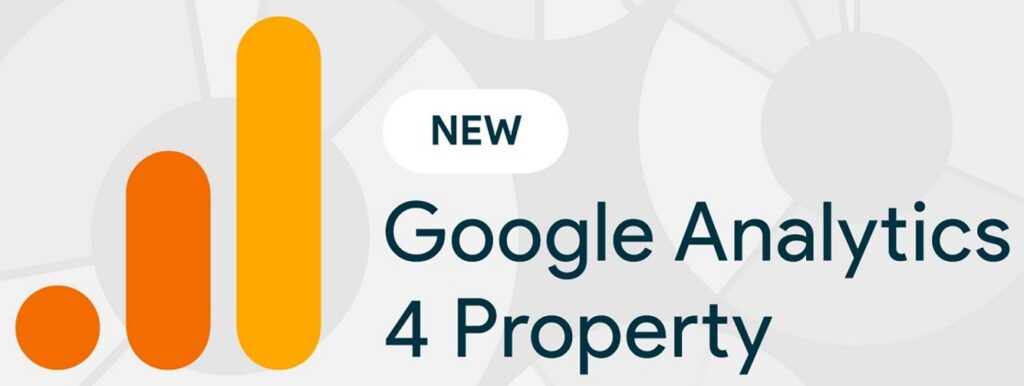Table of Contents
ToggleGA4 Updates To Assist App Marketers
Google has announced new GA4 updates to assist app marketers in better analyzing user behavior and enhancing their marketing efforts. The improvements offer For iOS campaigns, more capable audience segmentation tools, greater performance boost possibilities, and enhanced measurement.
In a statement, Google said that the upgrades will offer app marketers, that use Google Analytics 4.
“privacy-centric analytics to understand user behavior across both web and app—all in one place.”

The AI-powered insights will also assist developers in boosting campaign performance.
-
Enhanced Audience Tools for App Marketers
An important new feature is enhanced audience management.
More focused interaction is now possible thanks to developers’ new ability to construct proposed audiences of people who have not yet gotten push notifications.
Google highlights the update’s possible effects by pointing out that just 37% of users activate push notifications when downloading apps. According to Google, when audiences are employed for ad campaigns, people that are unrelated to the audience will be automatically excluded.
-
Performance Boost and Comprehensive Measurement
The performance of campaigns may now be improved by app marketers incorporating aggregated data from willing signed-in users. According to Google, initial testing showed an up to 10% boost in Android app engagement conversions.

By enabling Google signals in the associated GA4 account, advertisers may use the acquired aggregated data. The Google Bard URL option, which Google added, enables better measurement of iOS app conversions from web ads that encourage visitors to download an app.
The new Google Bard option is simple to integrate with using GA4, allowing iOS apps to track all web-to-app conversion information.
-
Enhanced iOS Campaign Measurement and Performance
App advertisers may now leverage aggregated data from willing signed-in users to improve campaign effectiveness. According to Google, initial testing showed a 10% boost in conversions from Android app engagement.

By activating Google signals in the associated GA4 account, advertisers may use the aggregated data that has been gathered. Additionally, Google has introduced the Google Bard URL parameter, which enables improved monitoring of iOS app conversions from web advertisements that encourage people to download an app.
Full monitoring of web-to-app conversion statistics for iOS apps is made possible by GA4’s simple integration with this new Google Bard option.
In Conclusion,
For the purpose of assisting app marketers in better-comprehending user behavior on iOS, Google has made a number of privacy-focused modifications to GA4. Significant improvements include enhanced iOS campaign measurement, consented signed-in user data aggregation, stronger audience segmentation, and new geo-targeted lift measurement.
These enhancements, which put an emphasis on privacy-centric analytics, are meant to provide app marketers with the knowledge they need to improve their campaigns while safeguarding user information.







 Gaithersburg MD, USA
Gaithersburg MD, USA